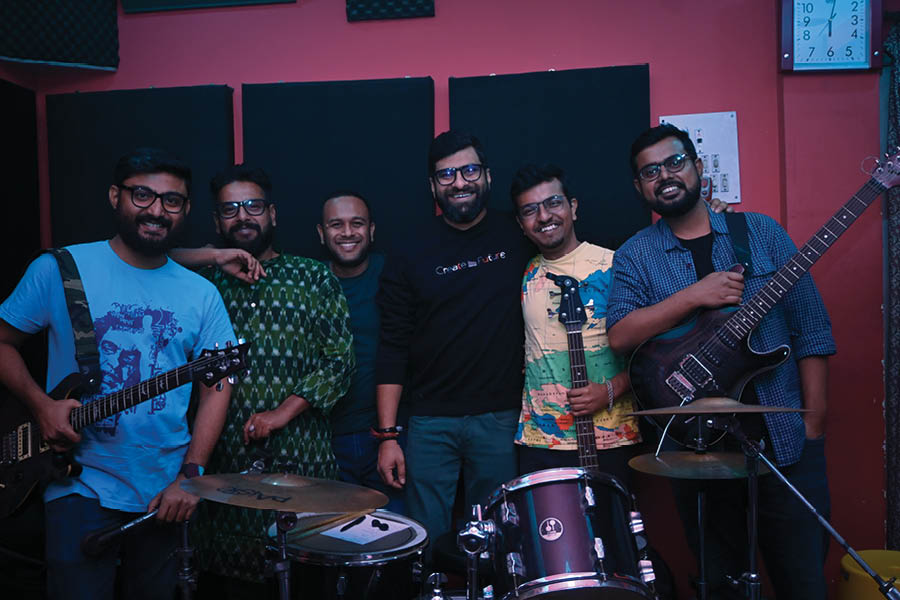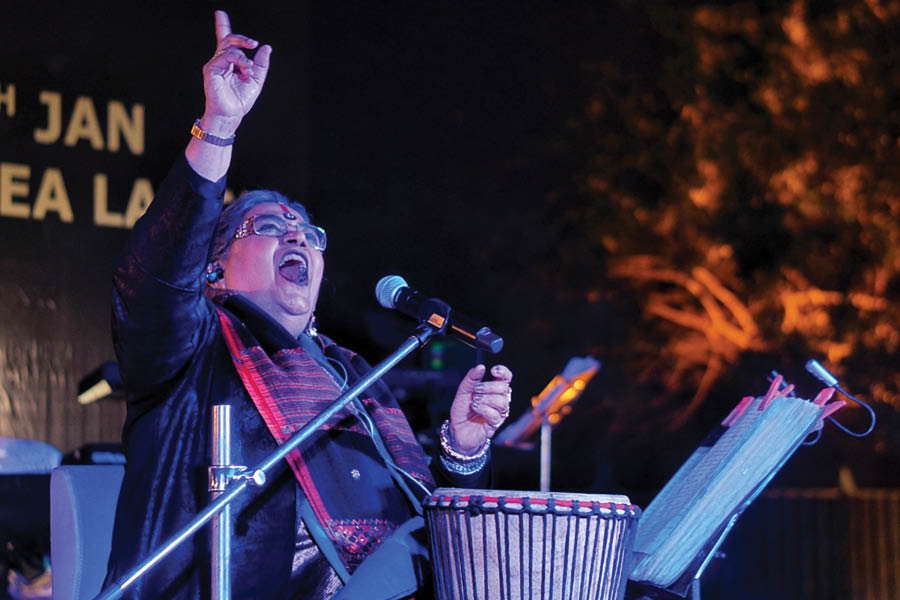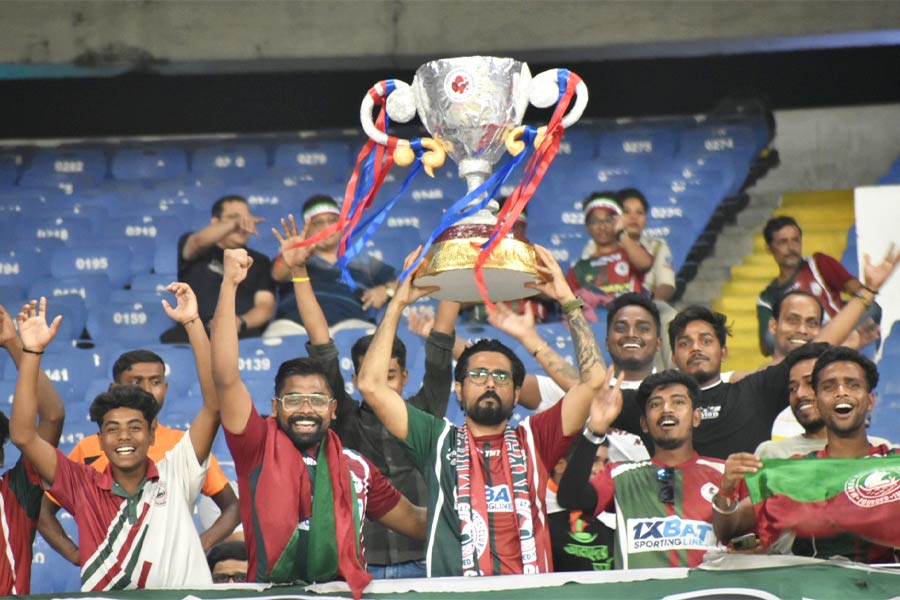When was the last time you paid to listen to a Bengali band perform original compositions in Kolkata? The answer might give you a clue regarding the moribund state of Bengali bands at a time when so many of us discover new music on Instagram reels and cycle through old favourites on Spotify. The wave of pathbreaking Bengali bands that took the city’s music scene by storm at the turn of the century crashed against the rock of market logic sometime in the middle of the 2010s. What remains, a decade and more later, is a select crop of illustrious names who have become too big to fail and an ever-growing list of fresh ensembles who are struggling to get going.
Enter, stage right — Obokaash, a band comprising six men who are IT professionals during the week and music fanatics during the weekend. Having started out as a jamming group in 2016 in the “blue room” of ed-tech company LearningMate (in New Town), Obokaash (meaning leisure) came into formal existence in August 2021, when vocalist Debayan Das convinced his ex-college roommate and guitarist, Debajyoti Bhattacharya, to team up with him. Gradually, as the demand for shows rose, the duo expanded to include drummer Anindya Sundar Maity and guitarist Priyabrata Banerjee. Debajyoti had to leave the core group soon enough, but two more additions — Prosenjit Chowdhury as lyricist and Satyaki Mukerjee as bassist— gave Obokaash a compact identity. Last year, the arrival of another guitarist, Bibhas Chatterjee, inserted more zing into the band, allowing them “to edge closer to finding our soundscape”.
‘Retaining audiences purely with Bengali songs, let alone original compositions, is extremely hard these days’
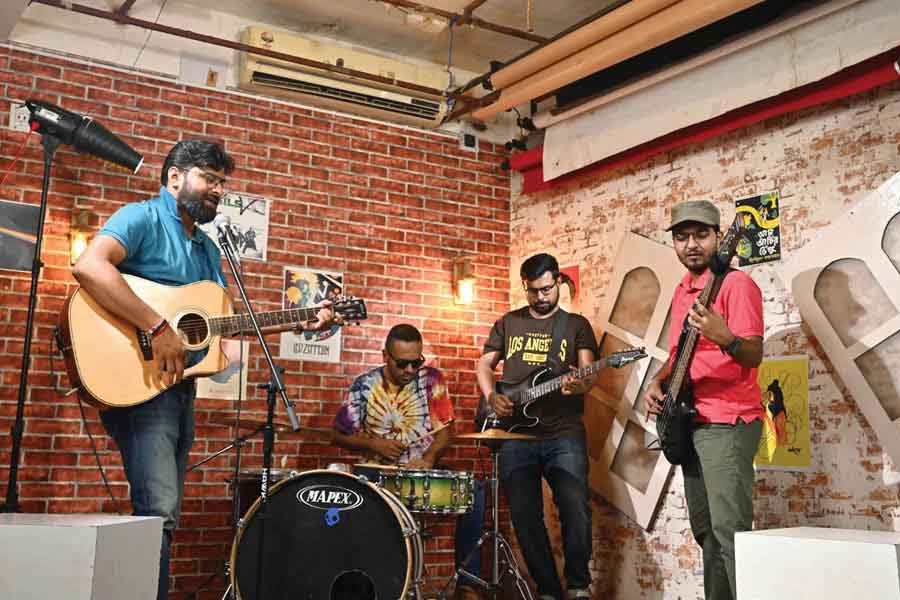
All the Obokaash members have been involved in music since their school or college days
Debayan DasWith an average age of 34 — Prosenjit is the oldest at 42 and 25-year-old Satyaki is the youngest — Obokaash is anything but a group of idealistic boys looking to bring in the next revolution in music. On the contrary, these seasoned talents — all of whom have been playing music in some form since their school or college days —- are aware of what they are up against. “The general consensus is that the Bengali band is dead. Retaining audiences purely with Bengali songs, let alone original compositions, is extremely hard these days. At so many of our shows, we’re asked to play Hindi cover songs. The assumption is that’s what everyone wants,” say Debayan and Satyaki. “You won’t find too many new bands opening for established performers in Kolkata, which automatically limits their exposure… There’s also a growing reluctance to listen to new Bengali music,” chimes in Anindya (whom everyone usually calls Maity and occasionally Mighty!). “There are so many incredible musicians who are making money not by performing, but by teaching music. These are people condemned to stay underground all their lives,” claims Priyabrata.
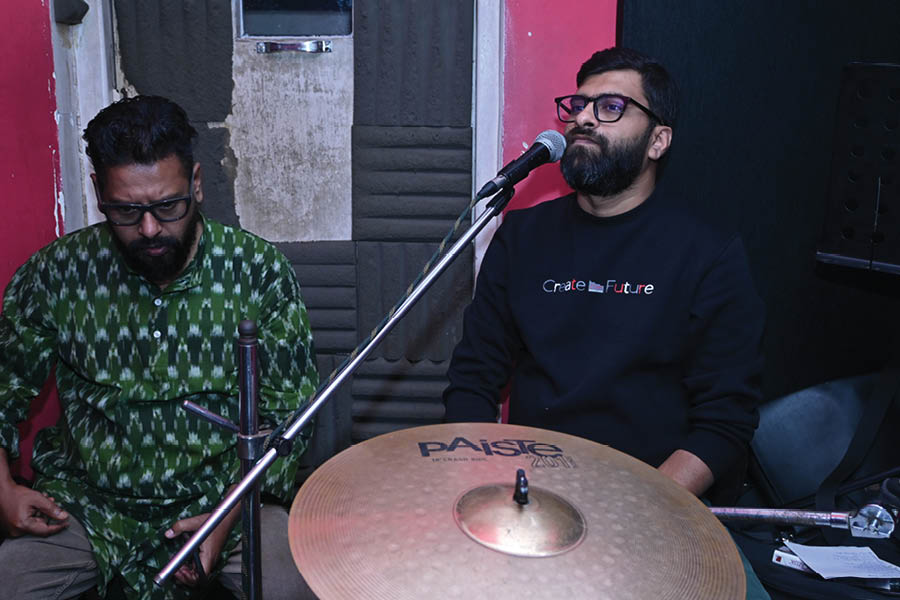
Obokaash wants to strike “the balance between what’s original and what’s saleable”
Amit PramanikFinancial sustenance is not a headache for Obokaash, since all six have full-time jobs — four of them at LearningMate. Rather, Obokaash’s biggest preoccupation is creating music that carries the stamp of their identity. “I feel we’ve reached close to 80 per cent of the soundscape we want to create. The remaining 20 per cent should stay in flux, because that means we’re adapting and evolving,” explains Debayan, before Anindya qualifies his statement: “We’re not averse to commercial music. For us, the key is to strike the balance between what’s original and what’s saleable. It’s about the trinity of the band, the business and the audience coming together.”
‘We’re in the domain of pop and soft rock, with country ballads thrown into the mix’
Obokaash’s original compositions so far have been remarkably diverse. While Kanamachhi (July 2023) is a soft and simple ode to nostalgia, Roktopolash (July 2022) is an intense, multi-layered meditation on political violence and corruption. Then there is the peppy Menoka (September 2022), a classic, feel-good Durga Puja song. Somewhere in the middle of this spectrum floats Aadhboja Bedroom (May 2022), a poignant reminiscence of romance. “I wrote Kanamachhi while waiting to meet Debayan at City Centre 2. It just came to me and the song happened. For Roktopolash, there was a proper churn, of processing and articulating my thoughts on events happening in Bengal and across India,” recalls Prosenjit, who confesses to understanding “nothing about instrumentals”. “A lot of my songs start out as poems, before we sit down, chop and change and try to set the words to music,” he says.
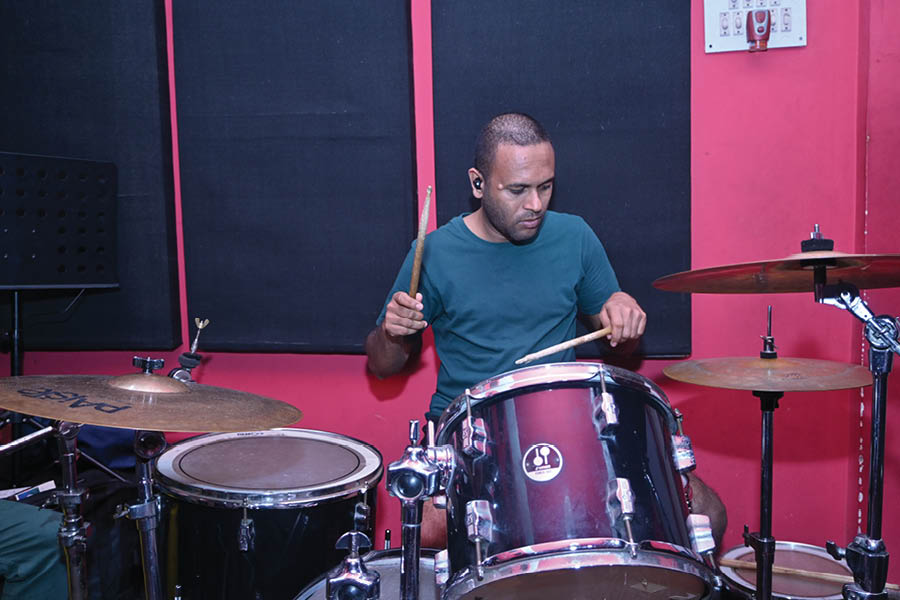
“Every band is full of egoists, but you’ve got to know your role,” says Anindya
Amit PramanikWith such a versatile portfolio already in place, what are the principal genres and styles governing Obokaash’s music? “Loosely speaking, we’re in the domain of pop and soft rock, with country ballads thrown into the mix,” replies Debayan, before Satyaki expands: “Even Rabindranath Tagore didn’t have a watertight philosophy in his art. His oeuvre is a great example of points and counterpoints. We don’t want to be too rigid in what we’re creating. At the same time, we don’t want to add 150 layers to our songs just because we can. We want to revive progressive rock but we want to do it based more on feelings rather than rules.”
Watching Obokaash members interact among themselves on a nippy Saturday evening makes it clear that there is no room for prima donnas in the band. “Look, every band is full of egoists, but you’ve got to know your role. Bibhas, for instance, has been a wonderful addition for us. He knows exactly when to step up and when to step back. He knows the value of silence, when to fill it and when not to,” describes Anindya, further underlining the democratic spirit that prevails at Obokaash (notwithstanding the banter directed at Satyaki for being considerably younger than the rest!).
Not ‘another nightclub band’
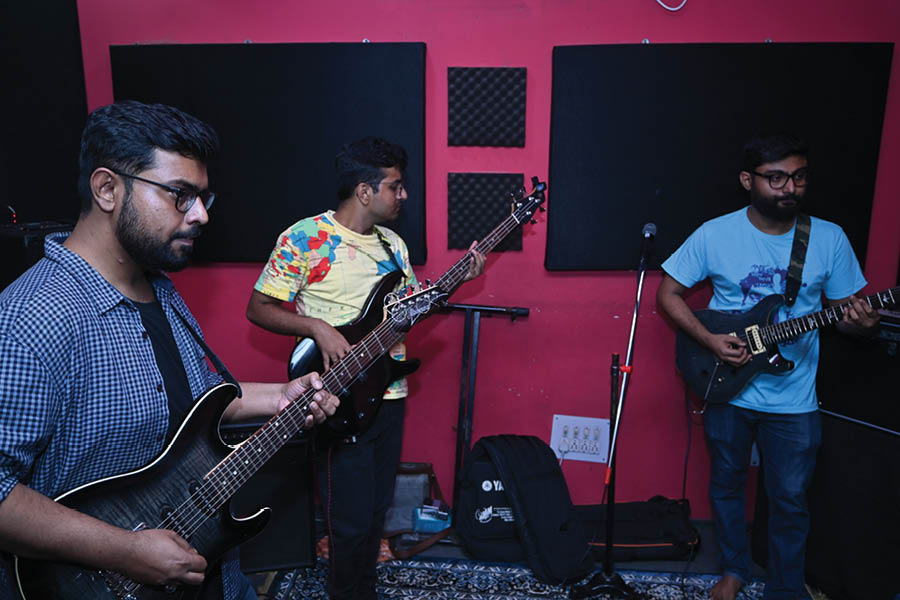
Obokaash wants to carve out their own niche in the landscape of Bengali music
Amit PramanikGoing forward, Obokaash is certain about not wanting to get bracketed as “another nightclub band”, though they have performed in several venues in the city as well as elsewhere across West Bengal and India. With some of the “biggest places in Kolkata” paying only Rs 8,000 to Rs 10,000 for a performance (to the band as a whole), lucrative gigs are few and far between. But, for Obokaash, the bigger question is this — who remembers your music at a cafe or a pub? “People come there to have a good time, and are mostly happy with a DJ setting the mood. At most, two or three people may mention you on Instagram, but that’s that,” sighs Debayan.
In order to carve out their niche in the landscape of Bengali music, Obokaash needs a stage that matches their zeal and an audience that is willing to invest in new music. While the former has eluded Obokaash till now, there have been a handful of moments when the infectious energy of the audience has made the men experience the all-conquering sensation of an adrenaline overdose. Moments that have made it worthwhile to cram themselves for hours in jam pads and let it rip. Moments when 20 or 30 people singing along to their passion projects have made Obokaash realise that in a world where it is becoming harder to separate music from noise, it is better to be loved by few than to be liked by many.


